Presentations
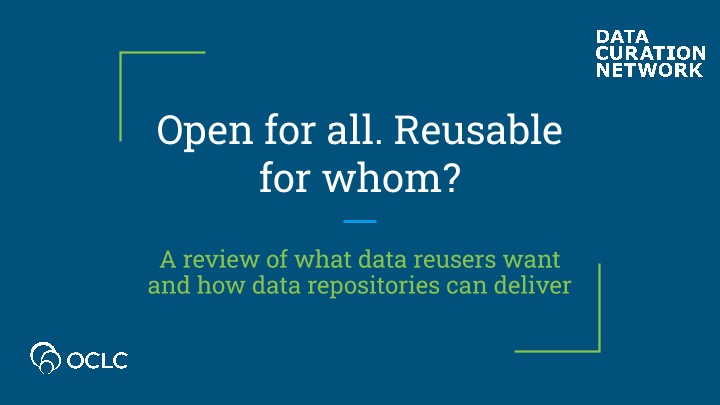
Open for All, Reusable for Whom?: A Review of What Data Reusers Want and How Data Repositories Can Deliver
virtual
Drawing from data reuse studies, we create a feature set to assess how data repositories are meeting data reuse needs. We use our findings to showcase desirable features in use to prototype the design of a reuser-oriented data repository that developers can use to improve their data repository interface.
Topics: Open Access, Research Data Management

Open for all. Reusable for whom? A review of what data reusers want and how data repositories can deliver
virtual
Presenters review past studies of data reusers, specifically a qualitative study of 105 researchers from three disciplinary communities: quantitative social science, archaeology, and zoology.
Topics: Research Data Management
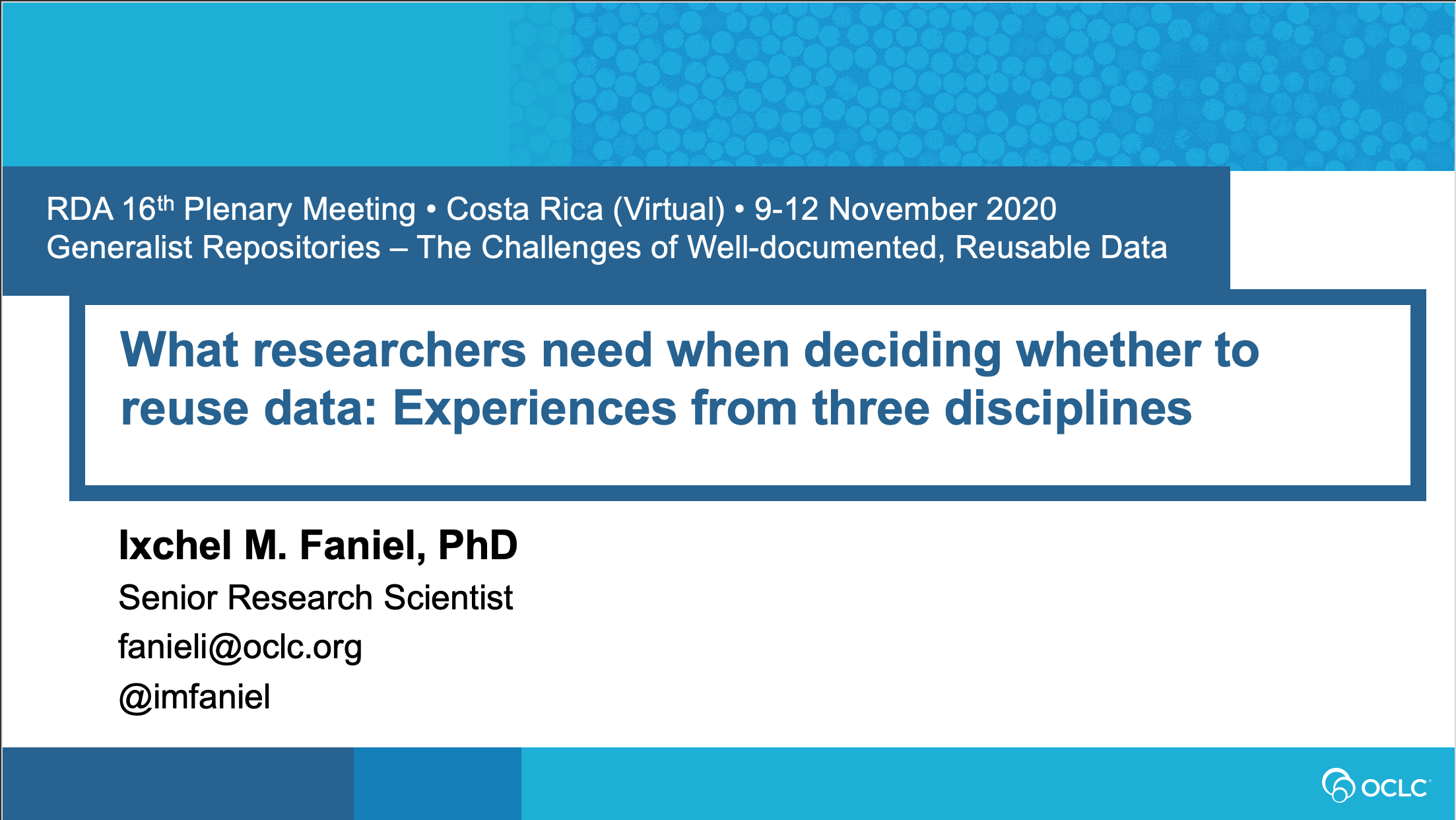
What researchers need when deciding whether to reuse data: Experiences from three disciplines
virtual
When researchers are deciding whether to reuse data, they need information about data’s context of production from a variety of sources such that data’s quality can be evaluated. This panel presentation compares the different types of context, sources, and data quality attributes quantitative social scientists, zoologists, and archaeologists mentioned needing during interviews and observations about their data reuse.
Topics: Research Data Management, User Research
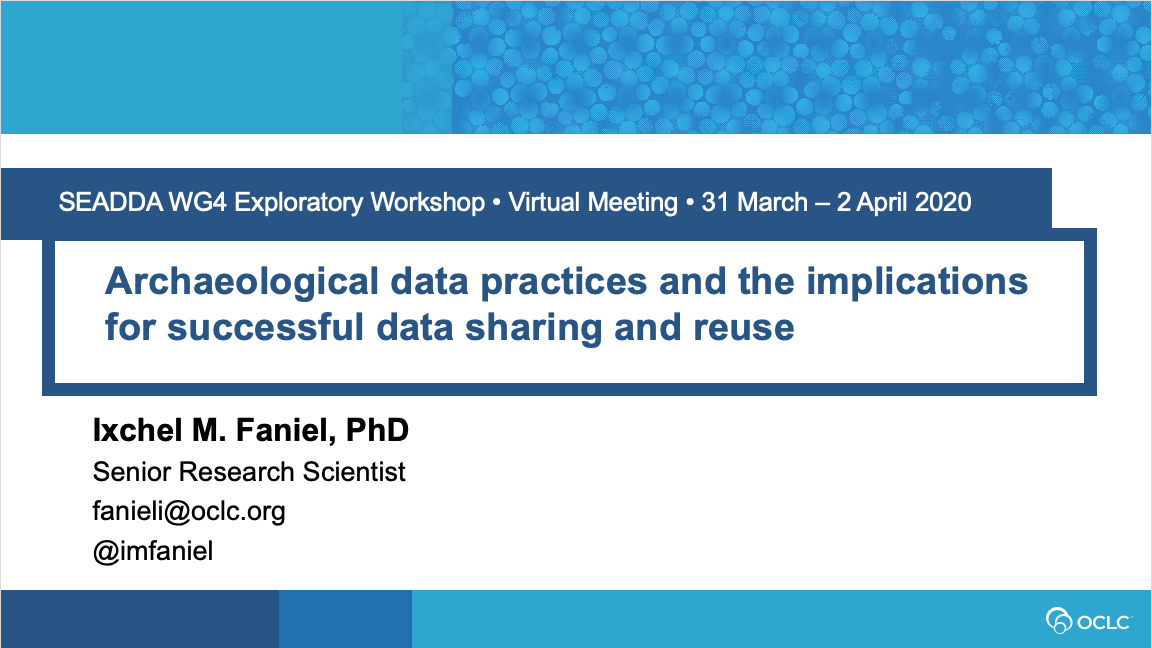
Archaeological data practices and the implications for successful data sharing and reuse
virtual
In this keynote presentation, Ixchel M. Faniel discusses findings from several studies examining archaeological data practices and needs and the implications for successful data sharing and reuse.
Keynote recording available from SEADDA.
Topics: User Research, Research Data Management, SLO-Data
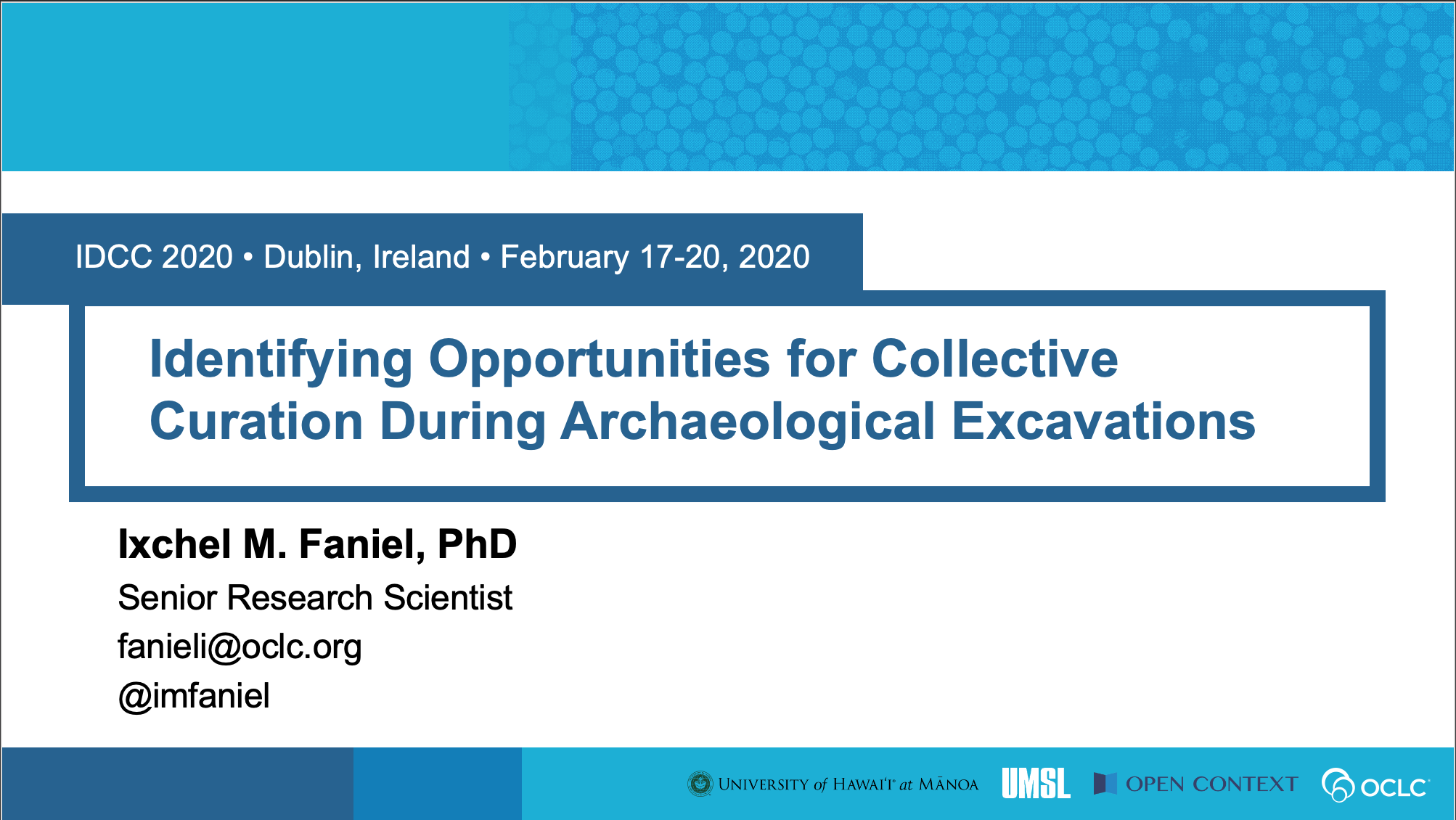
Identifying Opportunities for Collective Curation During Archaeological Excavations
Dublin, Ireland
Archaeological excavations are comprised of interdisciplinary teams that create, manage, and share data as they unearth and analyze material culture. These team-based settings are ripe for collective curation, particularly among the excavation teams responsible for unearthing the materials and the specialists responsible for analysing them. Yet, findings from a study of four excavation sites show specialist data tend to remain unlinked and decontextualized from excavation data. This presentation highlights findings from the study, opportunities identified for collective curation, and responses from the four excavation projects.
Topics: Research Data Management, User Research, SLO-Data
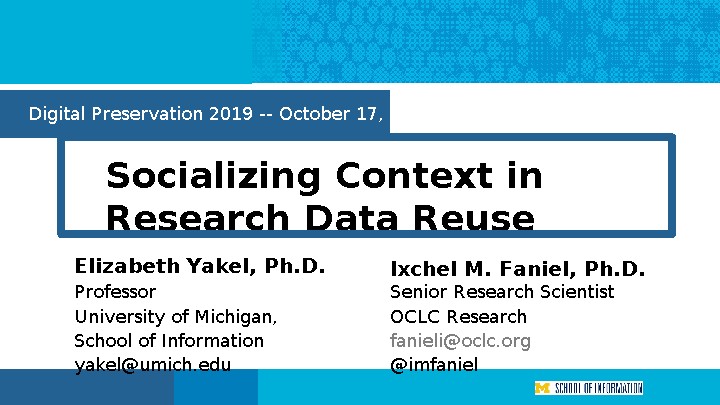
Socializing Context in Research Data Reuse
Tampa, Florida, USA
Presenters focus on data reuse and the data reuser's need for contextual information, the sources of context information, and the reasons why this information is needed.
Topics: Research Data Management
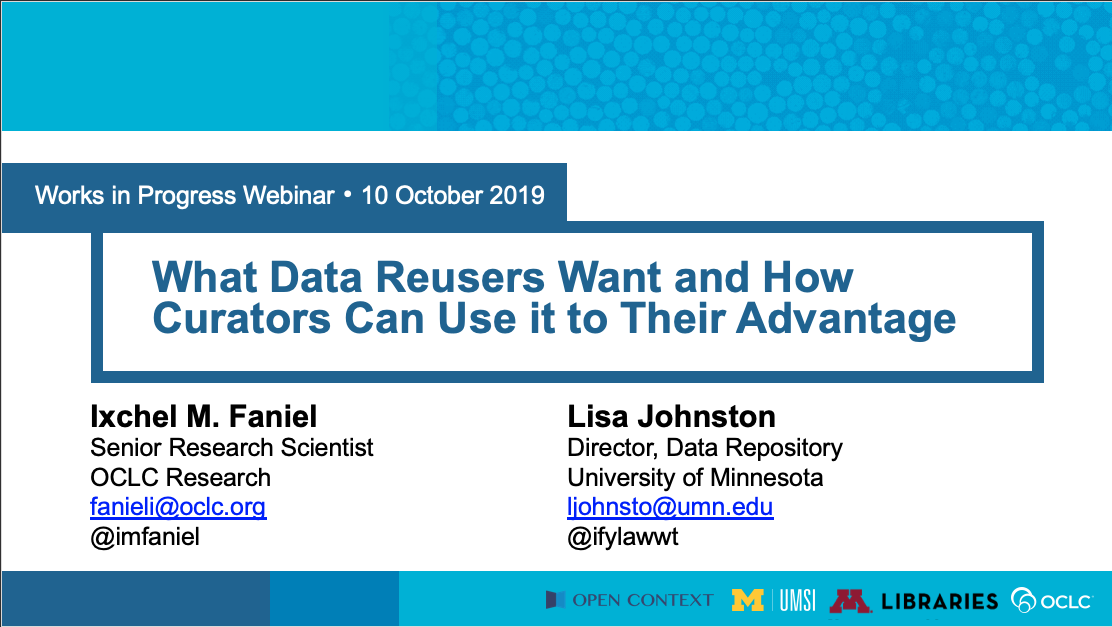
What Data Reusers Want and How Data Curators Can Use It to Their Advantage
This webinar explains the different types of context information needed to preserve data’s meaning in ways that support data reuse over time and to discuss when and how to best capture this information over the course of the data’s lifecycle.
Topics: Research Data Management, Works in Progress
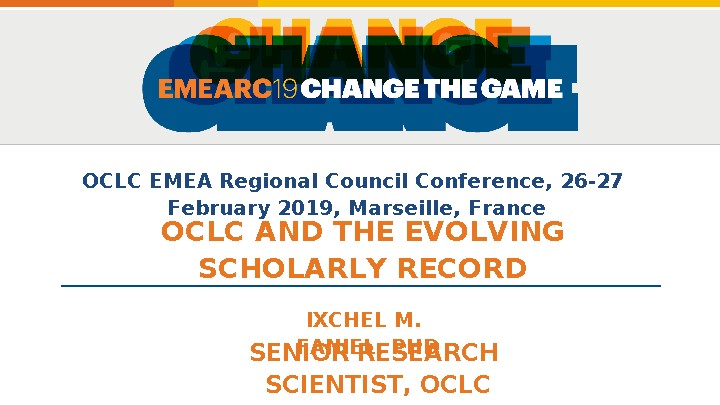
OCLC and the Evolving Scholarly Record
Marseille (France)
Ixchel M. Faniel explores the contours of the evolving scholarly record, including stakeholders, stewardship, conscious coordination, and the "inside out library."
Topics: Evolving Scholarly Record, Research Data Management, Research Information Management, User Research
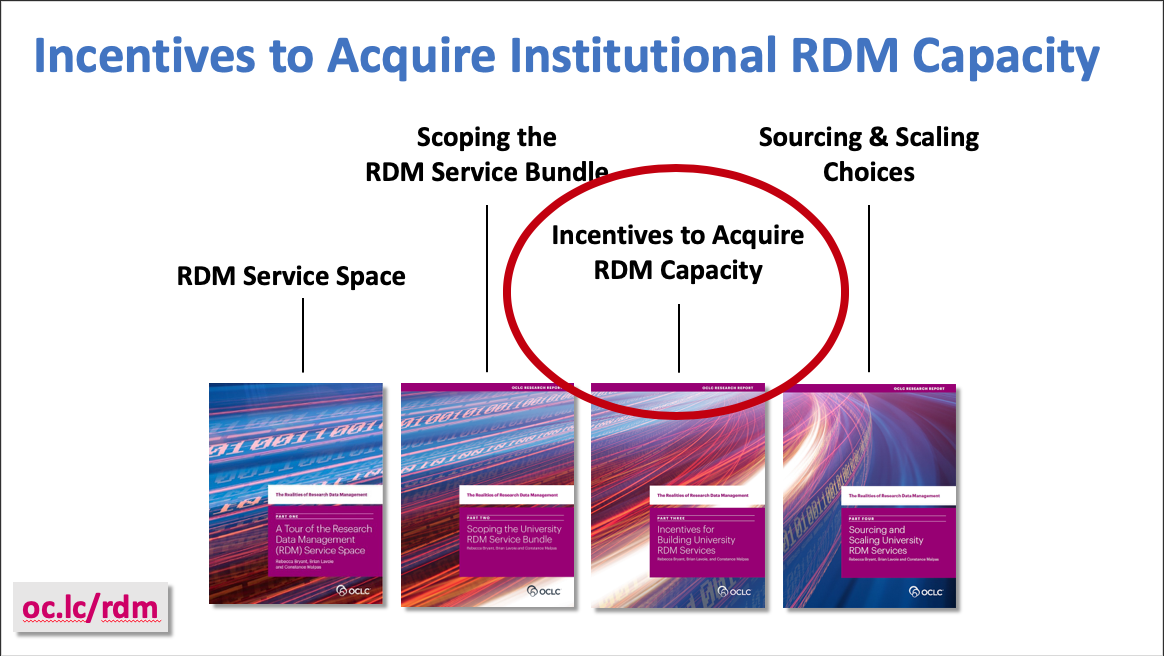
Identifying and Acting on Incentives when Planning RDM Services (video)
In the second webinar of the three-part Realities of Data Management webinar series, we continue to explore the factors influencing institutional decision making when developing resources and support for research data management. Here we present an incentives model that shapes local needs.
Topics: Research Data Management, Works in Progress
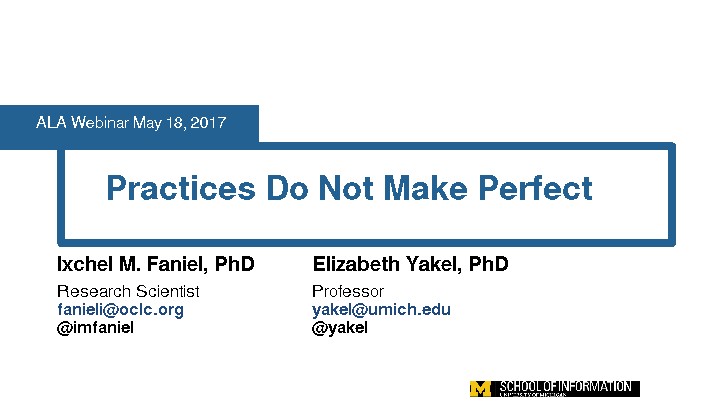
Practices Do Not Make Perfect
Virtual
Faniel details the Dissemination Information Packages for Information Reuse (DIPIR) research project, including research methods, findings, and implications.
Topics: Research Data Management, User Research